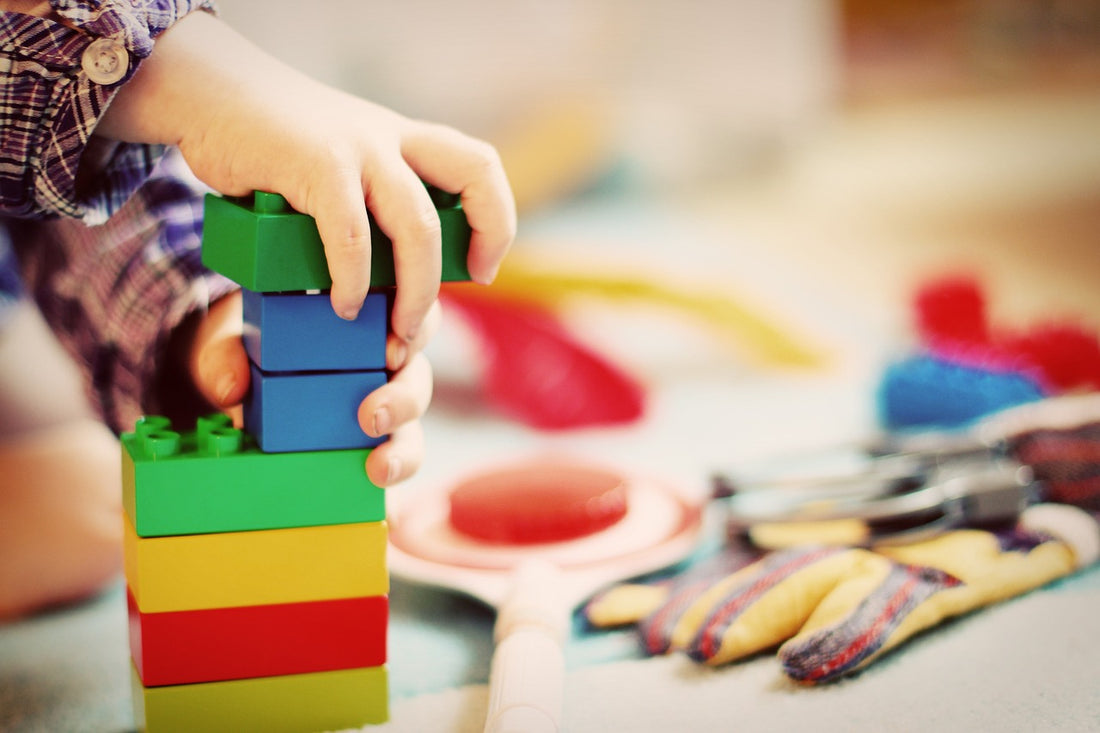Toys are not just objects that keep children entertained; they play a crucial role in your child's development. Engaging with toys allows children to explore, experiment, and learn about their environment.
It promotes imagination, creativity, and problem-solving skills - all essential for their cognitive development. Playing with toys also helps children enhance their social and emotional skills. Whether playing alone or with others, children learn to share, take turns, negotiate, and express their feelings.
Different types of toys can support the development of fine and gross motor skills, hand-eye coordination, and spatial awareness. By providing a variety of toys and encouraging play, you are nurturing your child's growth and development in numerous ways.
Understanding The Role Of Toys
Toys play a deciding role in fostering a child's cognitive, physical, and emotional growth. From simple building blocks to complex puzzles, each toy provides unique opportunities for learning and exploration.
Cognitive skills, such as problem-solving and critical thinking, are developed through toys that challenge and shape a child's mind. Physical toys, like bicycles or bouncing balls, promote healthy physical development and enhance gross and fine motor skills.
Moreover, toys that encourage imaginative play and social interaction contribute to a child's emotional and social development, promoting empathy, cooperation, and communication skills.
The Benefits Of Playing With Toys
Toys ranging from plush teddy bears to educational building blocks, foster imagination, creativity, and problem-solving skills. By engaging in independent play, children learn to think critically, developing their decision-making abilities and improving their concentration skills.

Moreover, toys encourage social interaction and communication, as children often engage in cooperative and pretend play, enhancing their ability to collaborate, negotiate, and empathize with others.
Through the joyous act of playing, children also learn to regulate their emotions, manage stress, and develop their self-esteem. Hence, the tremendous benefits of toys are absolutely paramount in their formative years.
1. Cognitive Development
The cognitive development of toys plays an important role in nurturing a child's intellectual growth and overall cognitive ability. As children engage with toys, their minds are stimulated. Critical thinking, problem-solving, and the development of various cognitive skills are developed.
Educational toys, for instance, serve as effective tools for enhancing a child's knowledge, encouraging curiosity, and fostering a love for learning. These toys often initiate children to explore and experiment, helping them to develop important cognitive abilities such as memory, attention span, creativity, and logical reasoning.

By engaging with toys that promote cognitive development, children are provided with the opportunity to expand their mental capacities and lay a solid foundation for lifelong learning.
2. Social Development
The social development of toys plays a crucial role in shaping children's cognitive, emotional, and social skills as they grow.
Toys have evolved significantly over the years from simple abacus to more interactive forms, reflecting the changing values and societal expectations. Today, educational toys that promote interactive play and cooperation are highly in demand and sought actively.
They help children develop important social skills like sharing, taking turns, empathy, and communication. These toy designs emphasize inclusivity, highlighting the importance of diverse representation to foster a sense of acceptance and understanding among children.
Moreover, modern toys often incorporate technological elements, encouraging kids to engage in collaborative problem-solving and enhancing their digital literacy.
3. Emotional Development
Emotional development that grows from toys is a crucial aspect of a child's growth and well-being. Toys serve as powerful tools that aid in fostering emotional intelligence, empathy, and social skills.
For instance, dolls and action figures enable children to explore various emotions and engage in pretend play scenarios that encourage empathy and perspective-taking. By acting out different emotions and experiencing role plays, children learn to understand their feelings as well as those of others.

Similarly, board games and puzzles teach children the importance of patience, resilience, and teamwork, promoting emotional regulation and cooperation. Toys that encourage self-expression, such as musical instruments or art supplies, empower children to channel their emotions creatively and develop a positive outlet for their feelings.
4. Physical Development
From simple building blocks to complex puzzle games, toys help children enhance their motor skills, coordination, and balance. Pushing, pulling, and manipulating toys not only improve their fine motor skills but also strengthen their hand-eye coordination.
Riding bikes and playing with sports equipment facilitate gross motor skills, allowing children to build strong muscles and develop spatial awareness. Moreover, playing with toys encourages children to engage in physical movement, promoting an active and healthy lifestyle from an early age.
Whether it's running, jumping, or climbing, toys provide a fun and interactive way for children to exercise and enhance their physical abilities, fostering overall growth and development.
Choosing Appropriate toys
When selecting toys, one must consider the child's age, interests, and developmental stage. Age-appropriate toys not only ensure their safety but also facilitate the acquisition of new skills and abilities.
Choosing appropriate toys for children is an integral part of their development process. As responsible adults, it is crucial to understand the impact that toys can have on a child's cognitive, physical, and emotional growth.

For instance, toys that encourage imaginative play, problem-solving, and motor skills can significantly contribute to a child's creativity and overall development. Additionally, it is essential to choose toys that reflect the diversity, promoting inclusivity and teaching children about different cultures and perspectives.
Conclusion
In conclusion, toys play a vital role in a child's development as they provide numerous opportunities for growth and learning.
Through interactive play, toys stimulate a child's imagination and creativity, encouraging them to think outside the box and solve problems. Moreover, toys also promote cognitive development by fostering reasoning skills, memory retention, and hand-eye coordination.
Playing with toys allows children to develop social skills as they learn to share, take turns, and collaborate with others. Toys can aid in emotional development as children use imaginative play to express their feelings and experiences.
Overall, the use of toys in a child's life is a powerful tool for their holistic development, enriching their cognitive, social, and emotional growth.
So, if you would like to buy Toys that improve the overall well-being of your child, then TinyTown is the best online destination for you to visit. We have thousands of Toys to choose from whether indoors or outdoors, all created with incredible detail and care. So, do you want to gift more exquisite Toys to your children? Shop with us and check out our exclusive collection.

